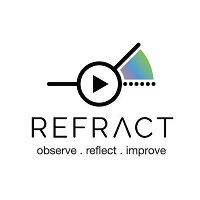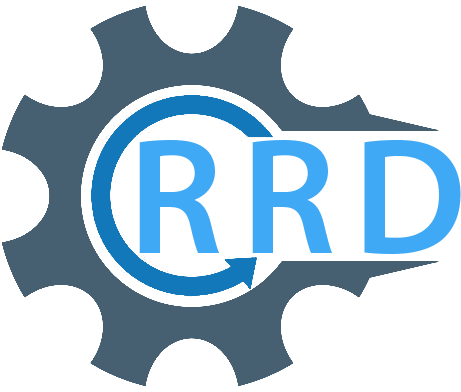Description

Paperless Proposal

Refract for Sales
Comprehensive Overview: Paperless Proposal vs Refract for Sales
Paperless Proposal
a) Primary Functions and Target Markets
Primary Functions: Paperless Proposal is a cloud-based software solution aimed at enhancing the proposal creation process. Its primary functions include creating, managing, and delivering professional sales proposals and presentations. The tool provides templates, analytics, customizable content libraries, e-signature capabilities, and integration with customer relationship management (CRM) systems to streamline the proposal process.
Target Markets: Paperless Proposal primarily targets sales teams and professionals in industries such as real estate, finance, insurance, and any sector where formal proposals are a critical part of the sales process. The tool is beneficial for companies that require frequent and detailed proposal generation to win contracts.
b) Market Share and User Base
Paperless Proposal is a niche product within the larger sales enablement and proposal management market. While specific market share data may not be publicly available, it typically competes with other proposal software like Proposify, PandaDoc, and Qwilr. Its user base includes small to medium enterprises (SMEs) and larger corporations seeking more efficient sales proposal operations.
c) Key Differentiating Factors
- Customization and Design: Offers significant flexibility with templates and design features for branding and personalization.
- Integration Capabilities: Strong integration with CRM systems, which enhances workflow efficiency.
- Analytics: Provides insights into proposal performance and client interactions, helping tailor follow-up efforts.
Refract for Sales
a) Primary Functions and Target Markets
Primary Functions: Refract for Sales is a sales coaching and performance management tool focusing on call analysis and conversation intelligence. Its main features include call recording, AI-driven feedback, sales performance analytics, and training modules aimed at enhancing sales pitch effectiveness and overall sales team performance.
Target Markets: Refract targets sales teams across various industries, particularly those in sectors where sales interactions are crucial, such as technology, financial services, and professional services. It is valuable for sales managers, trainers, and representatives aiming to improve their communication techniques and close rates.
b) Market Share and User Base
Refract operates within the growing conversation intelligence and sales coaching software market. The market is competitive, with other players like Gong.io, Chorus.ai, and ExecVision. It has a considerable user base among companies focused on leveraging AI and analytics for sales improvements, though it's more well-known in the UK and Europe, where it has its roots.
c) Key Differentiating Factors
- Call Analysis: Offers detailed analysis of sales calls with AI-driven feedback, enabling pinpoint identification of areas for improvement.
- Coaching Focus: Emphasizes on-going development and training of sales teams through insights from real-world interactions.
- Customization: Provides customizable coaching plans and feedback mechanisms to tailor the learning process to specific organizational needs.
RoloCRM
a) Primary Functions and Target Markets
Primary Functions: RoloCRM is a mobile-focused customer relationship management application designed to offer CRM features on the go. Key functions include contact management, call recording, email and SMS synchronization, and task management. The mobile-first approach aims at making it easier for users to manage their sales activities from their smartphones.
Target Markets: RoloCRM targets small to medium businesses (SMBs), freelancers, and independent contractors who require a portable solution for managing customer interactions and organizing sales efforts. It caters particularly to industries that rely on mobile workforces such as field sales, trade services, and small consultancies.
b) Market Share and User Base
RoloCRM addresses a niche in the CRM market by emphasizing mobile functionality. While it competes against larger CRM systems that offer mobile apps, like Salesforce and HubSpot, its specific focus on mobility attracts a dedicated user base among SMBs and individual professionals looking for simplicity and ease of use.
c) Key Differentiating Factors
- Mobile-first Design: Built primarily for mobile use, which sets it apart from traditional CRM systems with mobile capabilities.
- User Experience: Intuitive, streamlined interface designed for ease of use by on-the-go professionals with limited or no formal CRM training.
- Integration with Communication Tools: Seamless integration with phone calls and SMS/MMS for comprehensive communication tracking.
Summary Comparison
- Market Positioning: Paperless Proposal is geared towards proposal creation, Refract addresses sales performance and coaching, while RoloCRM focuses on mobile-first CRM interactions.
- User Base: Paperless and Refract cater more to structured sales environments with a need for automation and analytics, whereas RoloCRM appeals to those valuing easy, mobile-centric CRM functions.
- Differentiation: Each product differentiates itself based on unique features like design flexibility (Paperless), AI-driven call analysis (Refract), and mobile user experience (RoloCRM).
Contact Info

Year founded :
2009
+1 888-972-7375
Not Available
United States
http://www.linkedin.com/company/paperless-proposal

Year founded :
Not Available
Not Available
Not Available
Not Available
Not Available
Feature Similarity Breakdown: Paperless Proposal, Refract for Sales
When comparing Paperless Proposal, Refract for Sales, and RoloCRM, it's important to analyze their features, user interfaces, and unique characteristics. Here's a breakdown based on these aspects:
a) Core Features in Common
-
CRM Capabilities:
- All three tools offer customer relationship management functionality, allowing users to manage and track customer interactions and data throughout the customer lifecycle.
-
Sales Tracking and Analytics:
- They provide sales tracking features that help users monitor the sales pipeline and analyze sales performance through various metrics and reports.
-
Collaboration Tools:
- Each platform supports team collaboration to some extent, enabling sales teams to work together and share information effectively.
-
Integration Capabilities:
- They offer integrations with various third-party applications such as email platforms, calendars, and other productivity tools to streamline workflows.
b) User Interface Comparison
-
Paperless Proposal:
- Focuses on a streamlined interface designed for creating and managing digital proposals. The UI is often considered intuitive, with a strong emphasis on templates and customization tools to create visually appealing proposals.
-
Refract for Sales:
- Known for its interactive and user-friendly interface, Refract emphasizes conversational intelligence. The UI frequently includes dashboards and visual analytics designed for easy navigation and understanding of sales call data.
-
RoloCRM:
- Offers a straightforward and minimalistic interface aimed at managing customer relationships efficiently. It tends to focus on simplicity to make it easy for small to medium-sized businesses to adopt without a steep learning curve.
c) Unique Features
-
Paperless Proposal:
- Digital Proposal Creation: Distinctive emphasis on creating interactive and customizable proposals with multimedia support.
- Proposal Analytics: Provides insights into how recipients interact with proposals (e.g., time spent on each section), helping sales teams tailor follow-ups.
-
Refract for Sales:
- Conversation Intelligence: Specializes in analyzing sales calls and conversations to provide feedback and coaching opportunities.
- Call Recording and Analysis: Offers features for recording and analyzing calls to improve sales pitches and strategies. This is particularly beneficial for sales training and development.
-
RoloCRM:
- Mobile-First Approach: Designed with mobility in mind, RoloCRM’s app-centric approach provides robust mobile functionalities, making it suitable for teams that are often on the go.
- Contact Management Simplicity: Focuses on providing lightweight CRM features, which are highly accessible and easy to use for smaller teams or startups.
Each of these tools has its strengths and caters to different aspects of sales and customer management. Choosing the right one largely depends on the specific needs and focus areas of the business.
Features

Seamless Proposal Creation
Effortless Collaboration
Analytics and Tracking
Client Engagement
Secure and Accessible

Sales Performance Feedback
Training and Development
Performance Metrics
Sales Team Collaboration
Best Fit Use Cases: Paperless Proposal, Refract for Sales
When evaluating these three software solutions, it's important to consider the unique strengths and capabilities of each to determine which might be the best fit for different business needs:
a) Paperless Proposal
For what types of businesses or projects is Paperless Proposal the best choice?
Paperless Proposal is ideal for businesses that require robust and visually appealing proposal writing capabilities. It suits industries where proposals are a critical part of the sales process, such as real estate, insurance, advertising, and professional services. Companies that benefit the most from Paperless Proposal are those that need to create complex, tailored proposals with rich media content and require sophisticated features like analytics to track proposal engagement.
Best Fit Use Cases:
- Companies that frequently engage in RFP (Request for Proposal) processes.
- Businesses looking to enhance the aesthetics and interactivity of their proposals.
- Firms that require detailed analytics on proposal interaction to optimize follow-up actions.
b) Refract for Sales
In what scenarios would Refract for Sales be the preferred option?
Refract specializes in sales coaching, providing features like call recording, analysis, and performance enhancement tools. Companies with a focus on improving their sales team’s performance through training, feedback, and coaching will find Refract particularly useful. This is especially relevant in sectors with high-touch sales processes like technology, telecommunications, and financial services.
Best Fit Use Cases:
- Sales teams aiming to improve conversion rates through understanding client interactions.
- Organizations employing a coaching-focused approach to sales team development.
- Businesses needing insights into sales calls or meetings to refine their sales strategies.
c) RoloCRM
When should users consider RoloCRM over the other options?
RoloCRM is a customer relationship management tool designed for ease of use and flexibility. It is well-suited for small to mid-sized businesses that may not need the comprehensive and complex features of larger CRM systems. RoloCRM can be particularly beneficial for businesses looking to integrate CRM functionality into their existing mobile communication tools for enhanced customer interaction.
Best Fit Use Cases:
- Small to medium-sized enterprises (SMEs) requiring a simple, cost-effective CRM solution.
- Businesses focusing on leveraging mobile technology for customer engagement.
- Firms that need quick and easy access to customer information and interactions.
d) Catering to Different Industry Verticals or Company Sizes
Industry Verticals:
- Paperless Proposal caters to industries requiring detailed and customizable proposals. This includes real estate, insurance, marketing, and consulting.
- Refract for Sales is ideal for industries with a strong emphasis on direct sales, such as SaaS, finance, and telecommunications.
- RoloCRM appeals to a broad range of businesses due to its simplicity and mobile focus, including retail, small business services, and startups.
Company Sizes:
- Paperless Proposal is more aligned with mid to large-sized enterprises that have the resources to invest in sophisticated proposal tools.
- Refract for Sales serves businesses that are mid-sized or larger, where sales process optimization can significantly impact revenue.
- RoloCRM is particularly suited for small to medium-sized businesses that require a straightforward CRM solution without the complexity and overhead of traditional CRM systems.
In summary, these tools each fill different niches in the market, catering to varied needs based on company size, industry, and specific business functions. Decisions should be based on the alignment of the tool’s features with the strategic needs of the organization.
Pricing

Pricing Not Available

Pricing Not Available
Metrics History
Metrics History
Comparing teamSize across companies
Conclusion & Final Verdict: Paperless Proposal vs Refract for Sales
Conclusion and Final Verdict:
When evaluating Paperless Proposal, Refract for Sales, and RoloCRM, it's essential to consider various factors such as features, usability, integration capabilities, pricing, and specific user needs. Each of these products serves different purposes in the sales and CRM landscape, so the best choice depends heavily on what the user values most.
a) Best Overall Value: Considering all factors, RoloCRM offers the best overall value for users seeking a comprehensive CRM solution with strong sales functionalities. It provides a balanced mix of affordability, ease of use, and integration capabilities, making it suitable for various business types and sizes.
b) Pros and Cons:
-
Paperless Proposal:
- Pros:
- Specializes in creating dynamic and engaging sales proposals.
- Offers customization and branding options.
- Facilitates collaboration and tracking.
- Cons:
- Limited CRM functionalities outside of proposal management.
- Higher pricing for add-ons and advanced features.
- May require additional tools to cover full sales and CRM needs.
- Pros:
-
Refract for Sales:
- Pros:
- Strong focus on enhancing sales effectiveness through conversation intelligence.
- Provides analytics and coaching insights.
- Useful for sales teams looking to improve performance and close rates.
- Cons:
- Primarily focused on sales training, lacking robust CRM features.
- May not be suitable for businesses that need CRM functionalities.
- Can be costly if these features are not central to your needs.
- Pros:
-
RoloCRM:
- Pros:
- Comprehensive CRM solution with robust sales tools.
- User-friendly interface with a focus on customer relationship management.
- Integration capabilities with other business applications.
- Cons:
- Potential learning curve for users new to CRM systems.
- Some advanced features may require higher-tier subscriptions.
- May have less specialization in specific areas like proposal creation or conversation analytics.
- Pros:
c) Specific Recommendations:
-
Users primarily needing a powerful tool for creating and managing sales proposals should opt for Paperless Proposal. It excels in presentation and dynamic content, which can significantly impact closing deals with impressive client-facing documents.
-
Organizations that focus heavily on sales training and performance improvement should consider Refract for Sales. It provides valuable conversation insights and analytics which are useful for boosting sales team efficiency.
-
For businesses seeking an all-in-one CRM with strong sales capabilities, RoloCRM is the recommended choice. It is well-suited for small to medium-sized enterprises that need a unified platform for managing customer relationships and sales processes.
Ultimately, the decision should align with the specific needs, budget constraints, and strategic priorities of the organization. Trying out free trials and demos can also help in making a more informed decision.
Add to compare



